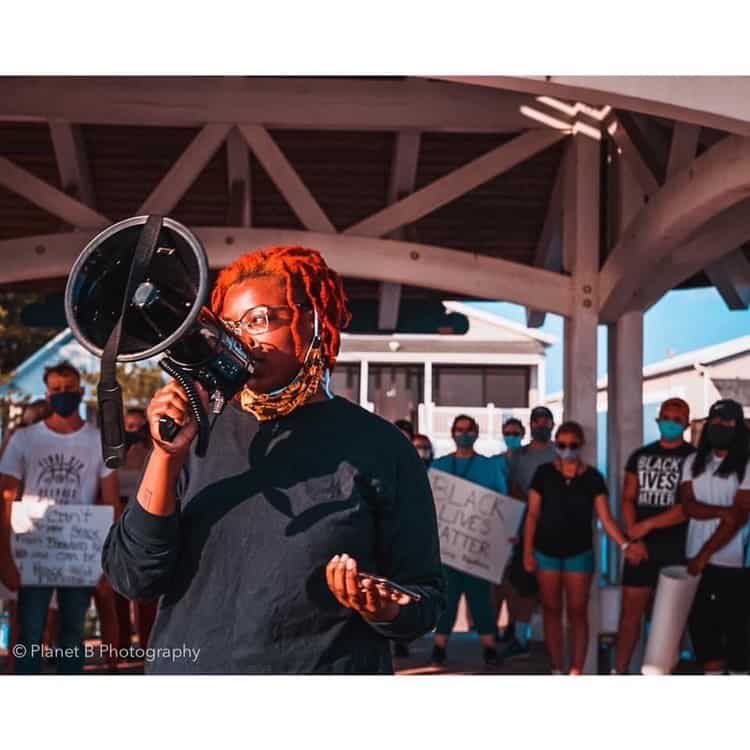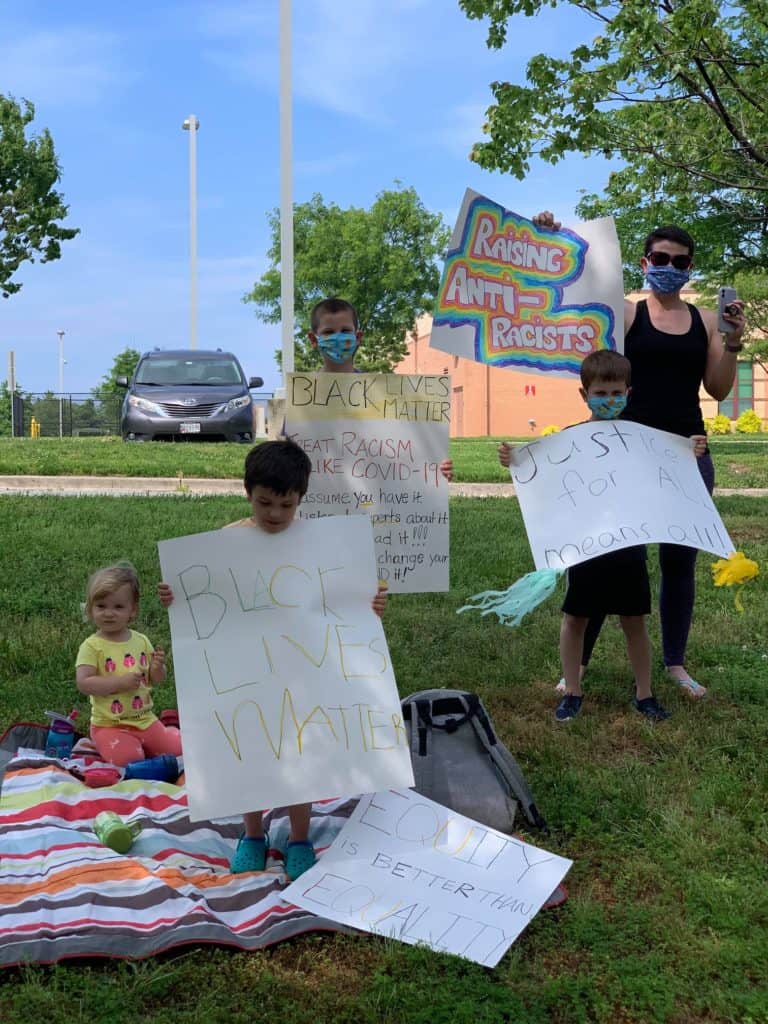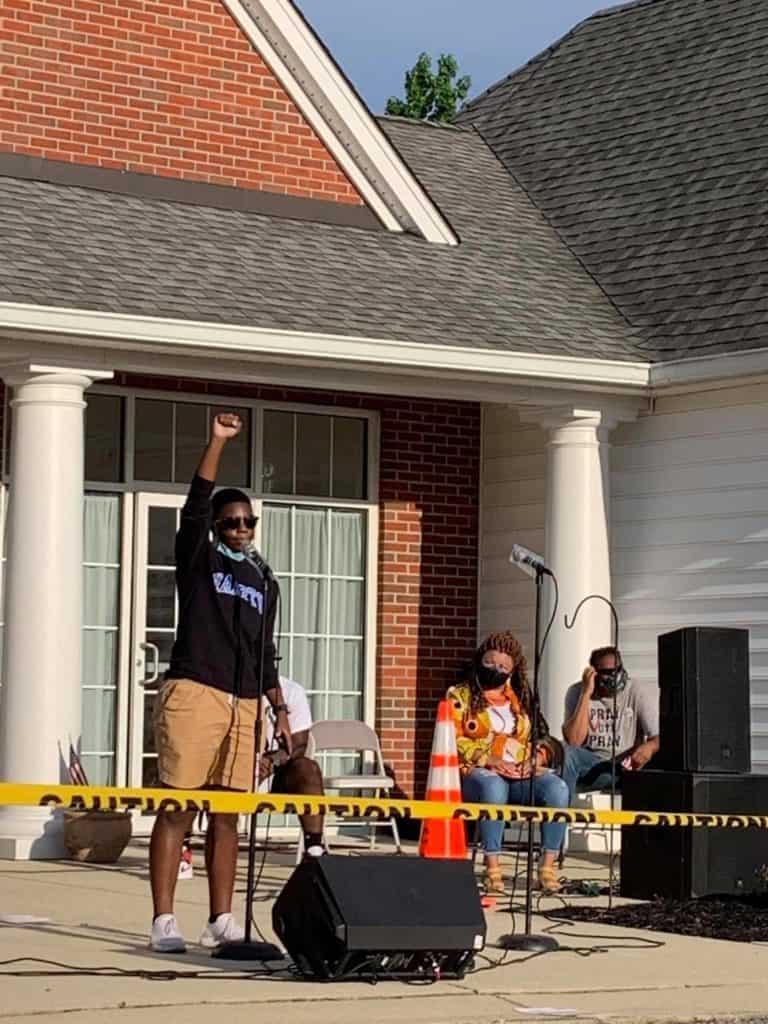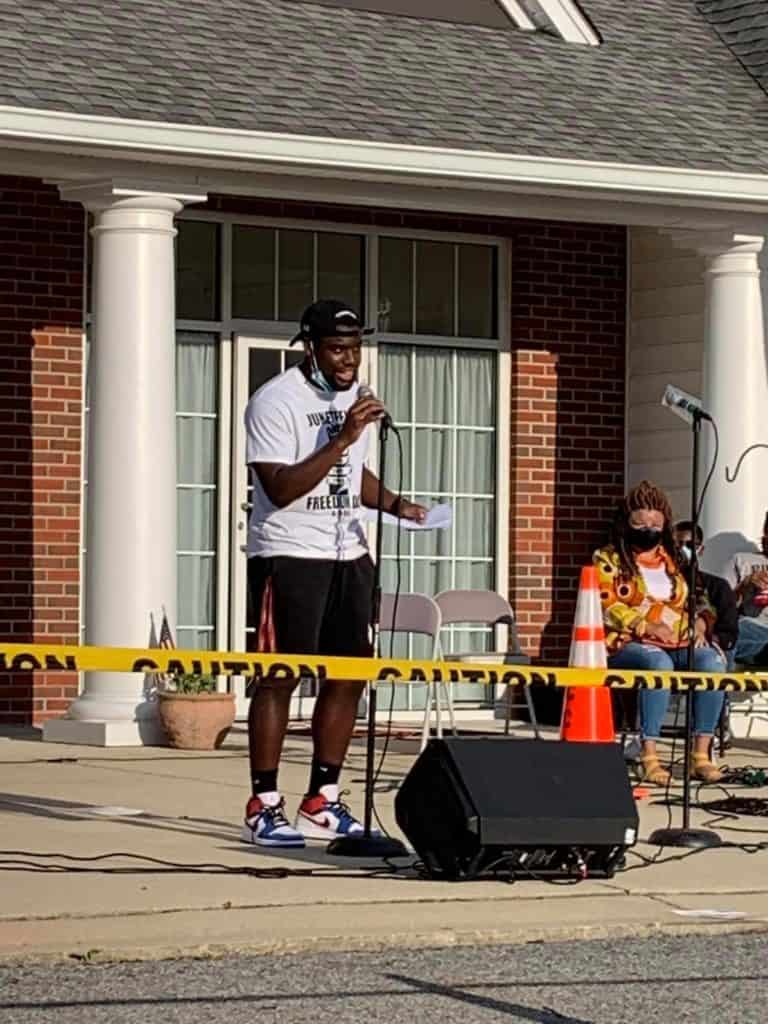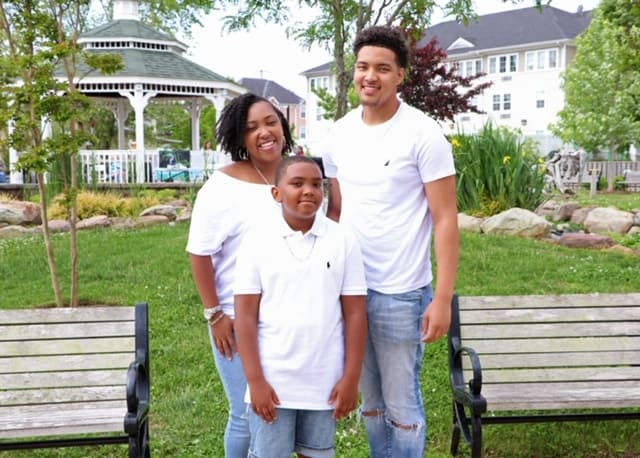Speaking Up for Social Justice
Young people lead the way to change
Almost a week after what may have been the most visible Juneteenth holiday to date, calls for an end to racism and injustice still echo strongly from major cities to small rural towns.
Demonstrations have happened in at least 1,700 places, according to tracking by USA Today (https://bit.ly/ProtestMap2020) . And in large part, they aren’t being led by the seasoned veterans of the civil rights movement of the 1960s. It is their children and grandchildren leading the modern movement.
“I think a lot of people thought the civil rights movement ended after Martin Luther King was assassinated in 1968. It never ended,” says Kevin Jackson Jr.
Jackson is a 24-year-old Temple University student from Lusby, whose parents came to Calvert County to teach in the public school system. “My parents firmly believe in working in the education system to empower African Americans and taught me to invest in my community.”
Jackson graduated this spring with a bachelor’s degree in electrical engineering and will return to Philadelphia to finish his master’s degree. After the murder of George Floyd, he says something was “ignited in him.”
“In Philly, things got crazy,” says Jackson. “They were protesting every day about everything. But when I came home, things were radically different.”
Jackson wasn’t seeing that level of public social action in Southern Maryland. Because of the coronavirus pandemic, the Calvert NAACP’s annual Community Day had been canceled. Looking for a way to bring the community together, Jackson decided to organize a Juneteenth gathering. He began on June 11. Juneteenth was just eight days later.
“I literally started planning something a week before. We faced a lot of pushback, trying to organize safely and working with different organizations. But we came together to support a great holiday.”
The Prince Frederick Juneteenth celebration drew about 250 people and included speakers and music. “We ended up having it in the parking lot of Mt. Olive UMC, and Maryland State Senator Mike Miller spoke, and so did clergy and Michael Kent. It was a great event and I think people came away enlightened, united, and empowered.”
Samirah Brown spoke at the event. Brown is a 2018 graduate of Northern High School now attending Hampton University in Virginia where she studies kinesiology and Spanish. “I shared a little history about Juneteenth, but also highlighted how important our social justice movement is, issues like mass incarceration, police brutality, and my own experiences with racism.”
Brown says she has worked to build relationships with many people across the country, in a variety of socially active organizations. Brown says she owes it to herself to use her own voice, her own words and her own platforms to let people know that “racial injustice and microaggression is absolutely here. People may think racism doesn’t exist here in Calvert County but I hear from people who look like me, every day, the stories of how they are treated.”
Brown, who lives in Dunkirk, moved to the area as a young child. “And it was an immediate culture shock. I came from a very multicultural school… there’s a low number of minority students here. I remember kids calling me names or yelling ‘KKK’ in my face. But I was only 11 at the time, so I didn’t know what I was supposed to say to them.”
Shanae Mackall of Prince Frederick has experienced similar negative reactions. “Being a nurse in the area, I’m automatically assumed to be the janitor at times,” she writes. “I often discourage my children from wearing certain hairstyles because I don’t want them to be judged.”
Mackall bought her home when she was just 20. “The area I purchased a home is automatically assumed to be a ‘bad neighborhood’ because it’s predominantly black. I listen to conversations with colleagues and hear such negative views of my neighborhood, and they’re shocked when I speak up and say I live there.”
NaQuita Coates, 26, of Huntingtown is tired of her family being treated like second-class citizens, being pulled over for having tinted windows or loud music and then having their vehicles searched because they are assumed to have drugs. “I have lived here my whole life and I know that there are stores that I don’t go into because I know I am unwelcome there. I want our community to be unified, but we have to address the fact that we have white supremacy and racism here. People of color should feel safe here and be able to do regular things, like get an education, go to a store. I want a community without hate, there’s just so much here now.”
Despite their negative experiences, these young adults are working for change in their communities. They are linking up with supporters and organizers to be the voices of change for their generation, their peers, their younger siblings and beyond.
Jackson works as a mentor and hosts Zoom meetings with other organizers, discussing legislation in various states and how to enlist public officials in their movement. To help feel like she was contributing to solutions, Mackall joined the local chapter of NAACP in “hopes of improving social and racial injustices in our community. Many of these injustices have always been present, but with the increased use of social media and cell phone footage, these issues are increasingly visible.”
She says the solution to the hate and the racism starts with being proactive. “We need to elect officials who are active in the community. Officers need to get to know the people in the community so there isn’t a sense of fear on either side. I believe the Black community fears law officers and they fear us as well, because of prejudices. This often results in a negative reaction from both.”
Coates draws on her background in social work to educate others through panels and forums with grassroots organizations.
Moving forward requires understanding what the issues are, says Brown. “Legislation is the only thing that can fix the issues and they are not just Johnny-Doesn’t-Like-Sally issues, they are deep-seated issues written into American laws, norms and rules of society since the start of this country, since the first colonists arrived here and took over native land.”
These young adults want to be heard and they want to educate others on what they believe is a one-sided view of America. “People need to know the truth of history, where racial injustice started,” says Brown. “No one is trying to erase history, but we have to fix things so this country is fair and equitable for all Americans. Then we can move forward and heal.”
Marchers at the Annapolis Juneteenth event included several parents with young children. “This is my future right here,” said Tanisha Kemp, referring to her young son, Michael who walked alongside her. “I’m sick and tired of turning on the news and our future is being gunned down.”
Helping our youngest Americans heal is the goal of Kristen Caminiti, founder of the nonprofit Kindness Grows Here. Caminiti, also a social worker began looking for ways to spread kindness. She and her family began by sharing candy bags, buying coffee, and bringing smiles to those in their Crofton neighborhood.
But when a noose was found at Crofton Middle School, she knew a bigger movement was needed. “We did this big sidewalk chalking event, on Mother’s Day, that drew like 300 people to spread a message of diversity and inclusion—that hate is not tolerated here.”
Caminiti believes there is an awakening happening among the White population, too. “There’s a new awareness and desire to do something, to help, so we want to help the parents out there who may not have ever had a conversation about race with their children (see below). We want kids to realize they can do something about the struggles our world is facing, by being an ally, speaking out when they see racism, and learn to be empathetic. And our kids need the historical background as to why Blacks are treated poorly in our country. It’s important to talk to them.”
And as Kemp’s son Michael remarked during the Annapolis rally, the way forward starts with our youngest citizens. “I want to help the whole community,” he said.
******
Anne Arundel County Public Schools and Kindness Grows Here will co-sponsor a virtual forum Thursday, June 25 (6:30pm) to help adults talk to children about issues surrounding race, streamed live on AACPS’ YouTube channel and broadcast live on AACPS-TV, ask questions in the comments on the YouTube link.

